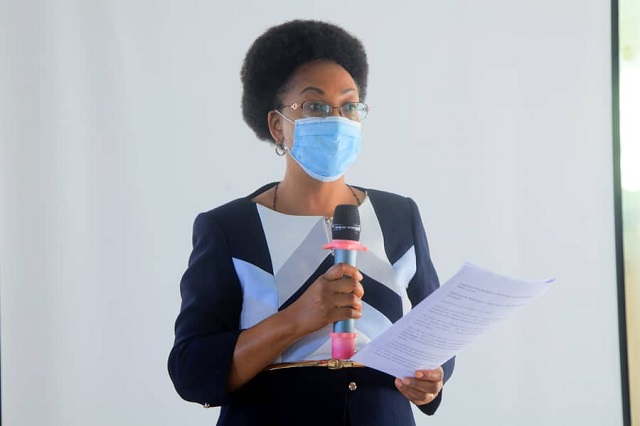
Kampala, Uganda | THE INDEPENDENT | Classes have remained under lock and key despite the government pressure on teachers to return to class or risk losing their jobs. Last week, teachers under the Uganda National Teachers Union laid down their tools to compel the government to give them equitable pay across the board.
Despite the strike, some schools remained open and allowed the learners to play around the compound. Even headteachers continued reporting to schools. However, the situation was different on Monday morning. Many of the schools visited by Uganda Radio Network in different parts of the country were empty without learners.
Even some of the head teachers were not around the school. This comes amidst threats from Catherine Bitarakwate Musingwiire, the Permanent Secretary of the Ministry of Public Service, the Vice President, and the Minister of ICT and National Guidance to scrap the teachers off the payroll unless they return to class.
In a circular addressed to teachers last week, Bitarakwate gave the striking teachers an ultimatum to return to duty in two days or resign from duty. According to Bitarakwate, teachers who would abscond from duty after the two days would automatically be considered absent and risk being scrapped off the payroll.
She asked Chief Administrative Officers and town clerks to carry out inspections and take note of the teachers who are absent. However, the government’s communication seemed to have pushed learners and headteachers further away from schools. In the Western part of the country, learners arrived at schools this morning to find classrooms locked with padlocks. By 8:30am, many of the government schools were under lock and key.
The few schools that were open only attended to P7 learners, many of whom were told to go to school in ordinary clothes. The situation in secondary schools in the region mimics that at primary schools. At Mpanga Senior Secondary School in Fort Portal, students were studying on their own.
George Rwabongoya, the head teacher told URN that only a section of science teachers were on duty whereas arts classes were empty as the majority of the staff members stayed away from classes. Some of the boarding schools in the district like Nyakasura School are urging students to engage in self-study since they cannot send the learners back home.
A teacher that our reporter spoke to at Kasese Primary School who preferred to remain anonymous intimated that they would remain on strike until they receive communication from their association leaders suspending the strike. The situation was the same in the West Nile region where schools remained closed and few learners who showed up were turned away and sent back home.
Khalid Acikule, a teacher at Okoi Primary School in Yumbe district, said that they will not return to school until they get communication from their UNATU leaders. According to Acikule, the government’s intimidation will not scare them to return to the classroom.
Teachers in Teso region also decided to stay away from schools despite the threats of dismissal hanging above their heads. In Kaberamaido and Kumi districts, head teachers told URN that they are trying to convince teachers who teach candidate classes to return to duty.
In Bukedea district, all the schools remained closed according to the DEO, Stephen Okurut. According to Okurut, teachers in schools such as Komuge Primary School and Kao Primary School did not show up. Learners in the district decided to stay away too. “Although this industrial action will worsen our education performance in the district, we have no other choice”, he said.
In Bugisu region, the situation was not any different. At Bukhatelema Primary School in Bududa district, the school was under lock and key. There were neither learners, teachers nor administrators at the school. Some of the classrooms have since started developing ant hills as a sign that they have taken a long time without having learners sit in them.
Geoffrey Kolya, the Chairperson LCII of Bumosi Parish where the school is located said since the strike started, there has never been any teacher at the school and parents also decided never to send their children to the school. He said this has continued to affect their children who are roaming in the villages.
In Kampala, Entebbe, and Luwero districts, the situation at many schools was similar to that of last week. Teachers on the government payroll did not show up to school. The few teachers that were found at schools were employed privately using funds from Parents and Teachers Associations.
At St. Joseph Primary School Nansana, the school was open with both teachers and learners present but there was no lesson taking place in many classes. Margret Nabakooza, the headteacher noted that she is aware of the teacher’s strike and would not compel any to teach.
She however added that since the school has been chosen by the Kampala Archdiocese to animate the Children’s Day celebrations, which will take place in Namugongo over the weekend, she has pleaded with the teachers to remain on campus so that learners may rehearse for the day.
Our reporter also spoke with teachers at the same school to get their thoughts on the government threats. Deogratius Mujuzi pointed out that those in authority need to understand that threats are ineffective.
He added that although some teachers might bow to the government’s pressure for fear of being scrapped off the payroll, they might not fully engage in the teaching-learning process.
Similarly, Martin Kizito, the Director of Studies at Namugongo Boys Primary School said that intimidation of teachers by the government is not a solution for the learners. Forcing teachers to school according to him will not make them teach.
In the Central region, several primary and arts subjects secondary teachers stayed away from school. For instance in Masaka district, the teachers have remained indifferent to the government’s instruction to end the industrial action.
At Luwero Girls Primary School, there are 13 government teachers but the head teacher Aidah Ssebigajju said that none had returned on Monday and the classes are being managed by few available private teachers.
Richard Bwabye, the Luwero Resident District Commissioner told URN that as a district, they had decided to go and court teachers to return to classrooms. According to Bwabye, a team from the district consisting of school inspectors will visit the schools and try to persuade the teachers to return to classes as government handles their requests.
District officials in other parts of the country have however decided to take more stern action. Gulu City Clerk, Isaiah Tumwesigye, says that they will implement the government’s position of sacking teaching staff who won’t attend classes.
According to Tumwesigye, they are already collecting daily attendance of teachers from all government primary and secondary schools, adding that they won’t hesitate to terminate those who will defy the government’s directives.
UNATU leaders from different branches that URN spoke to said they will remain steadfast in their demand for better pay. The teachers are striking in protest of what they are referring to as the government’s unfair salary structure.
Joseph Basisa, the chairperson of UNATU Nyakasanga division in Kasese municipality says they are ready to continue implementing the agreed-on position until they are guided otherwise. He says they don’t expect any member of UNATU and other affected teachers to be at school until they are advised to do so.
Similarly, Anthony Chan, the UNATU representative in Gulu City told URN in an interview that they will not call off the strike despite threats from the government. He says whereas other teachers at Gulu Senior Secondary School where he teaches are in class delivering normal classes, their colleagues on the government payroll have maintained their position not to return to class until a clear position is arrived at.
Herman Nsamba, the headteacher at St Gregory Primary School Butende, also the UNATU treasurer for Masaka city, indicates that their members are waiting for a pronouncement from the General Secretary, who asked them to suspend their services. He argues that although some of the teachers can report to school, they will not conduct lessons as required until government considers their demands.
Fred Damba, the chairman of UNATU Entebbe branch who had visited nine government-aided schools by 9am is happy that the majority of the 364 teachers have stayed home. Our reporter found Damba donning a UNATU shirt at Sacred Heart Bugonga Boys Primary School where he is the deputy headteacher.
During the interview, learners were seen roaming around the school compound while others were playing in and outside classrooms.
Some teachers however adhered to the government’s call. In Hoima district, many teachers were found in classrooms teaching. Victory Kiiza, a teacher at Bukerenge Primary School in Kitoba sub-county, where teaching was taking place told URN that they are sticking to their profession, adding that if they don’t report to class, the fate of pupils will be at stake moreover they lost a lot during the two years when the country was ravaged by COVID-19.
Kiiza urged all her fellow teachers who are still embracing the industrial action to return to classes and resume lessons.
*****
URN
 The Independent Uganda: You get the Truth we Pay the Price
The Independent Uganda: You get the Truth we Pay the Price


